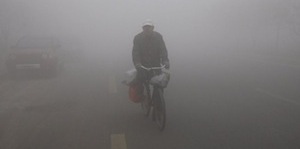Ocean Acidification- A New Climategate?
A good way to excite people is to tell them that something has become more 'acid' as 'the oceans are undergoing acidification and this is a potential environmental catastrophe.'- Wednesday, December 31, 2014
 Doubters and deniers are empowered by the main-stream media which has an interest in pumping up bad science or providing misleading headlines to create a 'debate' where there should be none
Doubters and deniers are empowered by the main-stream media which has an interest in pumping up bad science or providing misleading headlines to create a 'debate' where there should be none
 Meta-Research Center at Stanford (METRICS), School of Medicine initiative
Meta-Research Center at Stanford (METRICS), School of Medicine initiative
 At doses up to more than 70,000 times the usual human exposure, BPA caused no health effects, no changes in body weight, effects on hormone levels, or changes in reproductive health or function
At doses up to more than 70,000 times the usual human exposure, BPA caused no health effects, no changes in body weight, effects on hormone levels, or changes in reproductive health or function
 Diarrheal diseases kill 700,000 children in India every year
Diarrheal diseases kill 700,000 children in India every year
 Some scientists want concern for the world’s dwindling phosphorus supply tacked onto the world’s list of environmental hazards with potentially global implications
Some scientists want concern for the world’s dwindling phosphorus supply tacked onto the world’s list of environmental hazards with potentially global implications
 If 25 years are needed to break even, cells that fail in 2-5 years, means solar will never be economically viable
If 25 years are needed to break even, cells that fail in 2-5 years, means solar will never be economically viable
 Perhaps Caltrans could install mini-windmills or solar panels on the bridge span. Then they would be exempt from fines regarding birds
Perhaps Caltrans could install mini-windmills or solar panels on the bridge span. Then they would be exempt from fines regarding birds
 The EPA estimates that 40% of the mercury that sinks out of the air and lands in the US comes from overseas
The EPA estimates that 40% of the mercury that sinks out of the air and lands in the US comes from overseas
 Research into global cooling and its implications for the globe is long overdue
Research into global cooling and its implications for the globe is long overdue